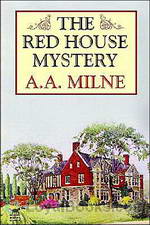|
Books Should Be Free Loyal Books Free Public Domain Audiobooks & eBook Downloads |
|
|
Books Should Be Free Loyal Books Free Public Domain Audiobooks & eBook Downloads |
|
Literature |
|---|
|
Book type:
Sort by:
View by:
|
By: Robert Herrick (1591-1674) | |
|---|---|
 Hag
Hag
A poem for Halloween by the 17th century English author Robert Herrick. His poems were not widely popular at the time they were published. His style was strongly influenced by Ben Jonson, by the classical Roman writers, and by the poems of the late Elizabethan era. This must have seemed quite old-fashioned to an audience whose tastes were tuned to the complexities of the metaphysical poets such as John Donne and Andrew Marvell. His works were rediscovered in the early nineteenth century, and have been regularly printed ever since. | |
By: Saki (1870-1916) | |
|---|---|
 Unbearable Bassington
Unbearable Bassington
The Unbearable Bassington was the first novel written by Saki (H. H. Munro). It also contains much of the elegant wit found in his short stories. Comus (The Unbearable) Bassington, is a charming young man about town. His perversity however thwarts all his mother’s efforts to advance his prospects and lands him in hot water. Like many a “black sheep” he ends up being sent off to one of the colonies to fend for himself. This book showcases Saki’s wonderful writing and that ability to be so very funny and terribly sad at the same time. | |
By: Sarath Kumar Ghosh (1883-?) | |
|---|---|
 Wonders of the Jungle
Wonders of the Jungle
How do elephants drink? What is the Law of the Jungle at the water hole? How does an elephant baby learn to feed and learn to swim? How do they walk under water? In what order do buffaloes drink? How do buffaloes fight the tiger? These and other wild inhabitants of the Indian jungle such as pigs, wild dogs, deer, camels, bears and birds are discussed in lively stories to entertain but mainly educate children of school age. "One of the great thinkers of the world has said that all the sciences are embodied in natural history... | |
By: Unknown | |
|---|---|
 Fall of the Nibelungs
Fall of the Nibelungs
"The Fall of the Nibelungs" is Margaret Armour's plain prose translation from the middle high German of the "Nibelungenlied", a poetic saga of uncertain authorship written about the year 1200. The story is believed by many to be based on the destruction of the Burgundians, a Germanic tribe, in 436 by mercenary Huns recruited for the task by the Roman general Flavius Aëtius. The introduction to the 1908 edition summarizes the story, "And so 'the discord of two women,' to quote Carlyle, 'is as a little... | |
By: Van Wyck Brooks (1886-1963) | |
|---|---|
 The Ordeal of Mark Twain (Version 2)
The Ordeal of Mark Twain (Version 2)
The Ordeal of Mark Twain analyzes the literary progression of Samuel L. Clemens and attributes shortcomings to Clemens' mother and wife. The Encyclopaedia Britannica says, Brooks' work "was a psychological study attempting to show that Twain had crippled himself emotionally and curtailed his genius by repressing his natural artistic bent for the sake of his Calvinist upbringing." Also, Brooks says, his literary spirit was sidelined as "...Mark Twain was inducted into the Gilded Age, launched, in defiance of that instinct which only for a few years was to allow him inner peace, upon the vast welter of a society blind like himself, like him committed to the pursuit of worldly success... | |
By: Various | |
|---|---|
 Best American Humorous Short Stories
Best American Humorous Short Stories
Eighteen short stories by famous and little known authors compassing the period 1839 - 1914. The editor's very extensive introduction is omitted from this Librivox audio book. | |
 Victorian Short Stories of Troubled Marriages
Victorian Short Stories of Troubled Marriages
A delightful collection of short stories by some of the luminary authors of the Victorian era. These stories explore the truth behind the victorian marriage. | |
 Little Masterpieces of American Wit and Humor Vol 1
Little Masterpieces of American Wit and Humor Vol 1
Volume 1 of a ten volume collection of amusing tales, observations and anecdotes by America's greatest wordsmiths. This work includes selections by such household favorites as Mark Twain, Oliver Wendell Holmes, Benjamin Franklin and Washington Irving. | |
 International Short Stories Volume 1: American Stories
International Short Stories Volume 1: American Stories
The first volume of a 3 volume anthology, this work focuses on American short stories and draws from Nathaniel Hawthorne, Anna Katherine Greene, James Fenimore Cooper, Edgar Allan Poe and many other favorites. Topics range from historical to science fiction, melodramatic to philosophic. | |
By: Willis George Emerson (1856-1918) | |
|---|---|
 Smoky God or a Voyage to the Inner World
Smoky God or a Voyage to the Inner World
The Smoky God, or A Voyage Journey to the Inner Earth is the narrative of an aged Norwegian sailor compelled before he dies to tell the story of how he found a passageway to the center of the earth and discovered a world peopled with giants. | |
By: A Bushman | |
|---|---|
 A Love Story
A Love Story
| |
By: A. A. Milne (1882-1956) | |
|---|---|
 The Red House Mystery
The Red House Mystery
The Red House Mystery is a novel by A. A. Milne about the mysterious death of Robert Ablett inside the house of his brother, Mark Ablett while there was a party taking place. It’s a whodunit novel with a simple story that's skilfully told. Milne is best known for his works about Winnie the Pooh, but before he became famous for telling stories about this teddy bear, he also garnered praise for “The Red House Mystery.” The novel was set during a house party in the mansion home of Mark Ablett known as the “red house... | |
 Once a Week
Once a Week
A collection of short stories by famed Winnie the Pooh author, A.A. Milne. This charmingly humorous work from Milne's earlier writing period was first published in Punch magazine. | |
 First Plays
First Plays
| |
 Happy Days
Happy Days
Although best known for his Winnie the Pooh stories, A.A. Milne spent years as an editor at the English humor magazine Punch. These sprightly essays were chosen from the hundreds he wrote during that period. As usual, they are funny, wry, and poke fun at almost all of our human foibles. There are 6 short one act plays that he wrote to demonstrate the 6 allowable plots for amateur playwrights and they are absolutely hilarious. The other topics run the gamut from dogs to dates. | |
By: A. B. S. (Alfred Browning Stanley) Tennyson (1878-1952) | |
|---|---|
 A Legend of Old Persia and Other Poems
A Legend of Old Persia and Other Poems
| |
By: A. D. (Alfred Denis) Godley (1856-1925) | |
|---|---|
 The Casual Ward academic and other oddments
The Casual Ward academic and other oddments
| |
 Lyra Frivola
Lyra Frivola
| |
By: A. E. W. (Alfred Edward Woodley) Mason (1865-1948) | |
|---|---|
 The Summons
The Summons
| |
 Ensign Knightley and Other Stories
Ensign Knightley and Other Stories
| |
By: A. E. W. Mason (1865-1948) | |
|---|---|
 The Four Feathers
The Four Feathers
The Four Feathers is a 1902 adventure novel by British writer A.E.W. Mason that has inspired many films of the same title.The novel tells the story of British officer, Harry Feversham, who resigns his commission in the East Surrey Regiment just prior to Sir Garnet Wolseley's 1882 expedition to Egypt to suppress the rising of Urabi Pasha. He is faced with censure from three of his comrades for cowardice, signified by the delivery of three white feathers to him, from Captain Trench and Lieutenants Castleton and Willoughby, and the loss of the support of his Irish fiancée, Ethne Eustace, who presents him with the fourth feather... | |
By: A. Ethelwyn Wetherald (1857-1940) | |
|---|---|
 An Algonquin Maiden A Romance of the Early Days of Upper Canada
An Algonquin Maiden A Romance of the Early Days of Upper Canada
| |
By: A. H. (Arthur Henry) Bullen (1857-1920) | |
|---|---|
 Lyrics from the Song-Books of the Elizabethan Age
Lyrics from the Song-Books of the Elizabethan Age
| |
By: A. J. (Alec John) Dawson (1872-1952) | |
|---|---|
 Jan A Dog and a Romance
Jan A Dog and a Romance
| |
 The Message
The Message
| |
 The Record of Nicholas Freydon An Autobiography
The Record of Nicholas Freydon An Autobiography
| |
By: A. J. (Augustine J.) O'Reilly | |
|---|---|
 Alvira, the Heroine of Vesuvius
Alvira, the Heroine of Vesuvius
| |
By: A. L. G. (Anna Louisa Geertruida) Bosboom-Toussaint (1812-1886) | |
|---|---|
 Major Frank
Major Frank
| |
By: A. Mary F. (Agnes Mary Frances) Robinson (1857-1944) | |
|---|---|
 Emily Brontë
Emily Brontë
| |
By: A. Maynard (Anna Maynard) Barbour (-1941) | |
|---|---|
 The Award of Justice Or, Told in the Rockies A Pen Picture of the West
The Award of Justice Or, Told in the Rockies A Pen Picture of the West
| |
By: A. T. Mahan | |
|---|---|
 Shakespeare's Christmas Gift to Queen Bess
Shakespeare's Christmas Gift to Queen Bess
| |
By: A.E.W. Mason | |
|---|---|
 At the Villa Rose
At the Villa Rose
Harry Wethermill, the brilliant young scientist, a graduate of Oxford and Munich, has made a fortune from his inventions, and is taking a vacation at Aix-les-Bains. There he meets, and immediately falls in love with, the young and beautiful Celia Harland, who serves as companion to the aging but warm-hearted Madam Dauvray of Paris. All this is observed by Julius Ricardo, a retired financier from the City of London, who spends every August at Aix, expecting there to find a pleasant and peaceful life... | |